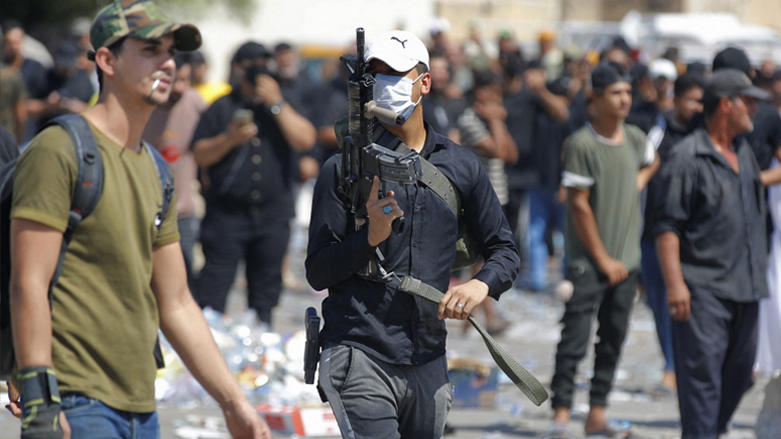US condemns violence in Iraq; calls for dialogue
The violence erupted after Muqtada al-Sadr, the largest vote-winner in Iraq’s elections last October

WASHINGTON DC, United States (Kurdistan 24) – US officials expressed their concern about the violence in Iraq on Monday, as they called for dialogue while citing the demonstrators’ right to peaceful protest.
Responding to journalists’ questions, State Department Principal Deputy Spokesperson, Vedant Patel, strongly denied rumors circulating on social media that the US was evacuating the embassy in Baghdad.
The violence erupted after Muqtada al-Sadr, the largest vote-winner in Iraq’s elections last October, announced in a Twitter post on Monday that he was resigning from Iraqi politics.
Iranian Coup through Iraq’s Judiciary—and Lack of US Response
Sadr’s tweet followed months of stalemate in the attempt to form a government. Despite having won a plurality of seats, Sadr has been thwarted by an Iranian-orchestrated coup within the Iraqi judiciary.
Tehran’s maneuver, described by Michael Knights of The Washington Institute for Near East Policy, involved suborning Iraq’s Federal Supreme Court into become an instrument of influence for Iran’s Islamic Revolutionary Guard Corps (IRGC.)
Knights, as well as David Schenker, former Assistant Secretary of State for Near East Affairs, writing in “Foreign Policy” magazine, called on the Biden administration to take a more active role to counter Iranian influence in Baghdad.
Even more significantly, three letters were sent last week from the US Congress, on a bipartisan basis, to Secretary of State Antony Blinken, calling on him to do more to support America’s friends in Iraq, including the Kurdistan Regional Government (KRG), against Iranian efforts to dominate in Baghdad.
But the effect of such entreaties appears to have been limited. Asked on Monday, following the violence in Iraq, if there had been any communications between senior US officials and senior Iraqi officials, Patel responded negatively.
“I don’t have any calls with any leaders to preview,” Patel said. “But as per standard, we’ll read something out, if something comes together.”
Affirmations of US Support for Iraq
On Monday, the US issued repeated statements condemning the violence in Iraq. The first such statement came from the embassy in Baghdad.
“Reports of unrest all over Iraq today are disturbing, as Iraqi institutions are not being allowed to function,” the embassy said in a Facebook post. “The United States is concerned about escalating tensions and urges all parties to remain peaceful and refrain from acts that could lead to a cycle of violence.”
“Now is the time for dialogue to resolve differences,” the Embassy continued. “The right to peaceful public protest is a fundamental element” of democracy, it affirmed, “but demonstrators must also respect the institutions and property of the Iraqi government, which belong to and serve the Iraqi people.”
Later in the day, when questioned about the Iraqi unrest, Patel repeated that statement.
Patel responded in much the same way when Kurdistan 24 asked about Schenker’s Aug. 24 Foreign Policy article, in which he argued that senior US officials were not paying enough attention to developments in Iraq, and, consequently, they were leaving the field to Iran.
“We have consistently reaffirmed the U.S. Government’s commitment to a strong, stable, and prosperous Iraq,” Patel said. “A long-term, deep, multifaceted, and strategic partnership serves both Iraqi and American people, and we are prepared to work with a government that puts Iraqi sovereignty and the best interests of the Iraqi people at the heart of its agenda.”
